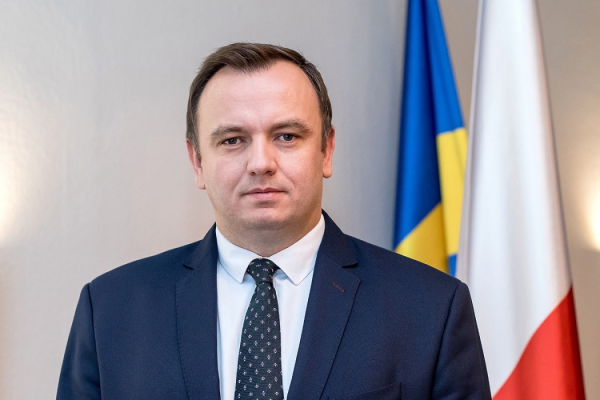Silesia demonstrates how to manage a crisis

Jakub Chełstowski is President of the Silesia region, in addition to being a member of the ECR Group at the European Committee of the Regions. Mr Chełstowski, with the help of Vice-President Wojciech Kałuża, and the Silesian Regional Executive, has helped navigate the Silesia region through the year 2020, which included the COVID-19 pandemic and the severe socio-economic ramifications that came with it.
With the onset of the pandemic, the Silesia region took quick and decisive action. Under Mr Chełstowski's leadership, the Silesian Regional Executive was among the first local government bodies to work in concert with the European Commission to support the efforts of the medical community, as well as understanding the needs of business owners and the general public. Most notably, the Silesian Regional Executive was able to renegotiate the "Regional Operational Programme" with the European Commission. This fruitful cooperation enabled EUR 75 million to be redirected toward fighting the COVID-19 pandemic and its consequences by supporting, for example, the healthcare sector, economic regeneration, social inclusion and by providing support to small and medium-sized enterprises.
Specifically, the aforementioned changes in the Regional Operational Programme also allowed the Silesia region to directly support thirty local medical facilities so that they were able to obtain critical sanitary and medicinal supplies. The redirection of EU funding made it possible to purchase and distribute personal protective equipment (PPE), respirators, defibrillators, breathing aids, etc. to regional hospitals and doctors' surgeries that were dealing with an influx of patients suffering from COVID-19. This heightened state of preparedness ensured that the life-saving equipment and supplies designed to protect the lives of healthcare workers was as available and plentiful as needed.
Speaking on the redirection of funding, Mr Chełstowski said: "the redirecting of funding in the Regional Operational Programme does not mean we have abandoned the goals outlined in our projects, rather, thanks to the European Commission's flexible approach, we were able to increase funding to those institutions that needed it most in the region, whilst maintaining the spending criteria established in the previous budgetary period. This has allowed us to manage the crisis responsibly".
In addition to supporting the medical staff and front-line healthcare workers, the Silesian Regional Executive developed an economic relief package to support citizens and businesses struggling in the pandemic. In particular, small and family-owned businesses were among the hardest hit by the lockdown restrictions. The Silesian Regional Executive moved quickly to ensure that small and medium-sized firms, which are often the cornerstone of local communities, were able to keep their doors open.
By quickly establishing a criteria and selection procedure, SME's are able to apply to receive government financial assistance for up to six months. Selection is decided on a case-by-case basis, however firms in particularly vulnerable industries such as tourism, services, leisure, etc. were recognised as being in the most urgent need of help at the time of the lockdown. Funding can cover up to 85% of business operating costs for eligible firms, and as of June, over 200 firms have signed a funding agreement in which their costs are partly subsidised by regional and European funding, with more expected to be signed throughout the year. Commenting on the economic dimension of the crisis and the stimulus granted to businesses, Vice-President Wojciech Kałuża said: "We are confident in the framework we created, it incentivises businesses to maintain a competitive edge and create jobs through innovation, development and ingenuity. The funding provided also allows businesses to prepare for a possible resurgence of the pandemic, thus minimising the potential economic impact of such an occurrence".

